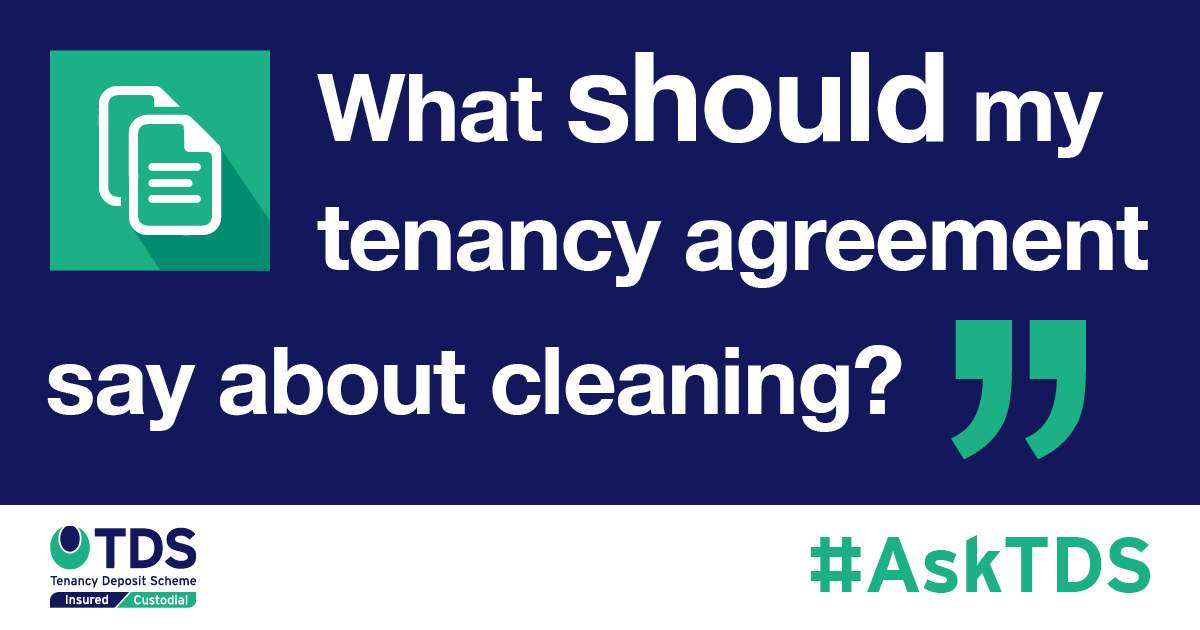The Tenancy Deposit Scheme (TDS) is a government approved scheme for the protection of tenancy deposits; we offer both insured and custodial protection. We also provide fair adjudication for disputes that arise over the tenancy deposits that we protect. This article has been written in response to a landlord’s query: “What should my tenancy agreement say about cleaning?”
Your tenancy agreement is the starting point in terms of important documents relating to leasing your property out to tenants. With cleaning one of the main reasons for a dispute being raised, it’s clear to see that your tenancy agreement should contain information about your cleaning expectations, and the tenant’s responsibilities.

Regarding the property during the tenancy
While you might think it would be common sense to keep a property clean during a tenancy, you should make this clear in the tenancy agreement. The tenancy agreement is the place to set the tenant’s (and landlord’s) obligations. A breach of those obligations, if it results in a loss, could result in a deduction from the deposit.
Regarding the deposit
Clearly explain that if the property has not been cleaned to the expected standard then the landlord may use part or all of the deposit to rectify this. It is incredibly important that this is stipulated in the tenancy agreement as should a dispute arise this will be the first port of call for an adjudicator.
Regarding clauses
A breach of an obligation in the tenancy agreement should always be supported with evidence, and you should always have a clear and comprehensive inventory and schedule of condition in place. At the end of the tenancy, you should have a similar document to show the condition of the property when the tenant moves out.
There may be situations where you wish to put an additional obligation on the tenant. For example, you may give the tenant permission to keep a pet on the condition that the property is cleaned to a professional standard, with carpets cleaned, at the end of the tenancy. Perhaps the property was given to the tenant cleaned to a domestic standard and the carpets had not been freshly cleaned. Ordinarily, requiring the tenant to return the property in a better condition than they received it in would be classed as betterment. On a case-by-case basis, you may wish to add a specially negotiated clause to your tenancy agreement. This should be separate from your standard clauses, and signed separately by you and the tenant. This obligation is then absolute and while the claim must still be reasonable, the evidentiary requirement is not as high.
Regarding the end of the tenancy
It is worth highlighting the areas that often get forgotten about, and detailing their condition again in the check out. You can also include a pre-check out guide to help tenants to stay on top of everything they will need to do prior to moving out. You may find this tenant ask TDS blog useful when deciding what areas you believe need to be pointed out to tenants.
You don’t need to turn your tenancy agreement into War and Peace, but it is important to include clear and comprehensive clauses which set out both parties’ obligations. Keeping open communications with your tenants throughout the tenancy will help to ensure they are aware of your expectations and their responsibilities.
Other news stories


